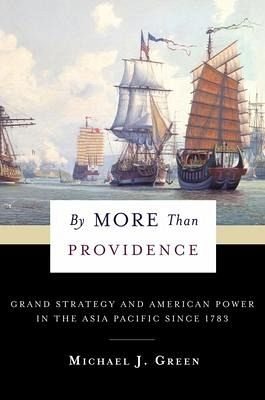
By More Than Providence
Grand Strategy and American Power in the Asia Pacific Since 1783

PAYBACK Punkte
27 °P sammeln!
In a history that spans the eighteenth century to the present, Michael J. Green follows the development of U.S. strategic thinking toward East Asia. Green finds one overarching concern: that a rival power might use the Pacific to isolate and threaten the U.S. and prevent the ocean from becoming a conduit for the westward flow of trade and values.













